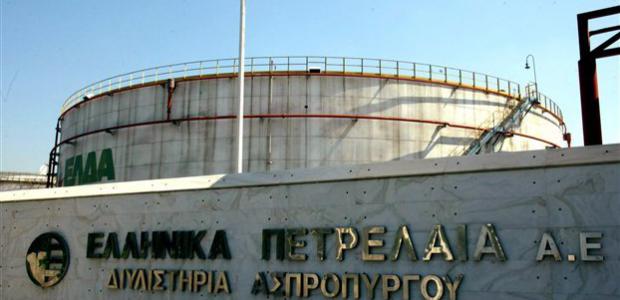Greek oil refinery ELPE (Hellenic Petroleum) is preparing to revise its corporate strategy and refocus on alternative energy activities as a result of the Paris Agreement reached last Saturday night at the COP21 climate change conference in the French capital, committing developed and developing countries alike to limit their greenhouse emissions.
The world’s heavy reliance on oil and coal will need to be considerably lessened to keep temperature increases at no more than 2C with an aspiration of 1.5C, according to the Paris agreement.
“We first need to determine the future energy needs of consumers, their profiles, and then provide solutions that will cover their needs,” remarked ELPE managing director Grigoris Stergioulis, while noting that domains such as electricity, hydrogen technology, as well as natural gas, represent potential areas of increased activity for the corporate group.
“We need to plan our turn to other alternative forms of energy and prepare for the future if want to continue to exist,” Stergioulis noted.
He did not rule out an increased role in the electricity market, now opening up to competition, even through a wider partnership for electricity production with main power utility PPC. ELPE is already active in the country’s electricity market through Elpedison, a joint venture involving ELPE, Edison, Ellaktor, and Halkor.
Stergioulis is scheduled to meet with Edison officials at the Italian company’s Milan headquarters next week. “The market is ripe for partnerships,” the ELPE official noted.
ELPE expects to end 2015 with a record EBITDA performance. The company also expects an injection of funds in early 2016 from the prospective sale of a 66 percent stake of DESFA, Greece’s gas grid operator, to Azeri energy company Socar and a transmission system operator (TSO). ELPE holds a 35-percent share of DESFA.
ELPE’s oil exploration and exploitation plans have been overwhelmed by the plunging international price of crude oil. The company had conducted plans based on the assumption that oil prices would range between 60 to 65 dollars a barrel. The level has now dropped to less than 40 dollars per barrel.
Stergioulis revealed that a deposit had not been paid to Norwegian seismic offshore company Dolphin, for commissioned seismic survey work in the Gulf of Patras, western Greece. Struck hard by the fallen oil prices and the industry’s shrunken investment plans, the Norwegian company filed for bankruptcy earlier this week.





